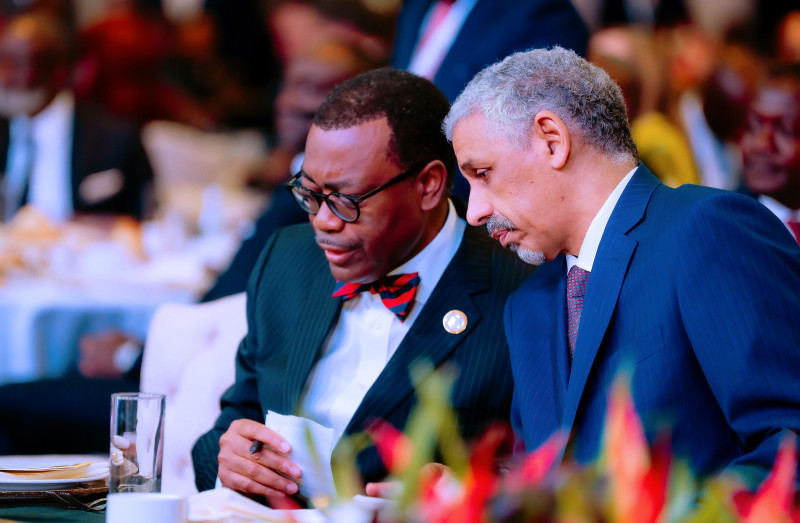The Arab Bank for Economic Development in Africa's (BADEA) 50th Anniversary: Leaders unite to celebrate success, urge increased Africa-Arab economic collaboration

ACCRA, Ghana, July 23, 2024 -- Ghana’s President Nana Akufo-Addo and African Development Bank Group (www.AfDB.org) head Dr. Akinwumi Adesina joined dignitaries from Africa and the Arab world on Sunday for a ‘Leaders’ Breakfast’ celebrating the 50th anniversary of the Arab Bank for Economic Development in Africa (BADEA).
The event, held in Accra on the sidelines of the 6th Mid-Year Coordination Meeting of the African Union, also marked the launch of an Arab-Africa Financial Consortium to strengthen economic, financial, and technical cooperation between the two regions.
Since its inception in 1974, BADEA has significantly contributed to economic development and cooperation between African and Arab countries. Over the past 50 years, it has financed over 700 projects in more than 44 African countries, with a total value exceeding $6 billion. These projects have created jobs, improved living standards and spurred economic growth across the continent.
President Akufo-Addo lauded BADEA for its impactful investments across Africa, suggesting its experiences should serve as a model for the future. “Over the past five decades, BADEA has been a beacon of hope, a catalyst for development, and a symbol of the enduring bond between our regions,” he emphasized. He called for increased cooperation between Africa and the Arab region, focusing on sustainable and resilient solutions, including investing in human capital, renewable energy, and digital infrastructure.
“The challenges we face today are complex and multifaceted, ranging from economic uncertainties and geopolitical tensions to the impacts of climate change and the COVID-19 pandemic. To address these challenges effectively, we must continue to strengthen our partnership and leverage our collective strengths, “the Ghanaian president said.
Adesina stressed the importance of strategic cooperation between the two regions to pool financial resources for the desired transformation of Africa. “We need a structured and coordinated partnership that will pool financial resources between Africa and the Arab Region to address critical issues such as food security, energy transition, youth employment, and infrastructure development,” he said.
Adesina highlighted significant outcomes from partnerships with various Arab institutions, including co-financing with the Islamic Development Bank exceeding $2 billion, and collaborations with BADEA and the OPEC Fund for International Development reaching $835 million and $742 million, respectively.
The African Development Bank has worked closely with BADEA to accelerate the delivery of its ‘High 5’ priorities for Africa. Adesina noted that the strategic partnership is bearing “good fruits” in Africa, adding that the launch of the Consortium will pave “a new and bolder” path for Africa-Arab economic and development partnership.
“Since our most recent memorandum of understanding signed in 2017, we have worked together to co-finance projects worth $835 million in nine countries, transforming and uplifting communities across nine African countries – from Madagascar to the Sahel,” Adesina affirmed. He urged more co-investment in green energy, green minerals, green infrastructure and food production, taking advantage of Africa’s abundant resources.
Adesina announced that BADEA would join the Africa Investment Forum (www.
Dr. Fahad Aldossari, Chairman of BADEA's Board of Directors, outlined the institution's investments across Africa, including support for 39 airports and various infrastructure projects aimed at human development.
He acknowledged key partners, including the African Development Bank, for their fruitful collaboration. “I want to seize this opportunity to thank my friend President Adesina for his brotherhood and partnership with BADEA, the World Bank colleagues, and my brother from the Arab Coordination Group,” he added.
The gathering, themed “BADEA Prosperity Partnership: 50 Years of Africa-Arab Cooperation,” drew leaders of Africa and the Arab world, including top government officials, business captains from the private sector, diplomats, representatives of pan-African bodies, as well as multilateral and development finance institutions.

